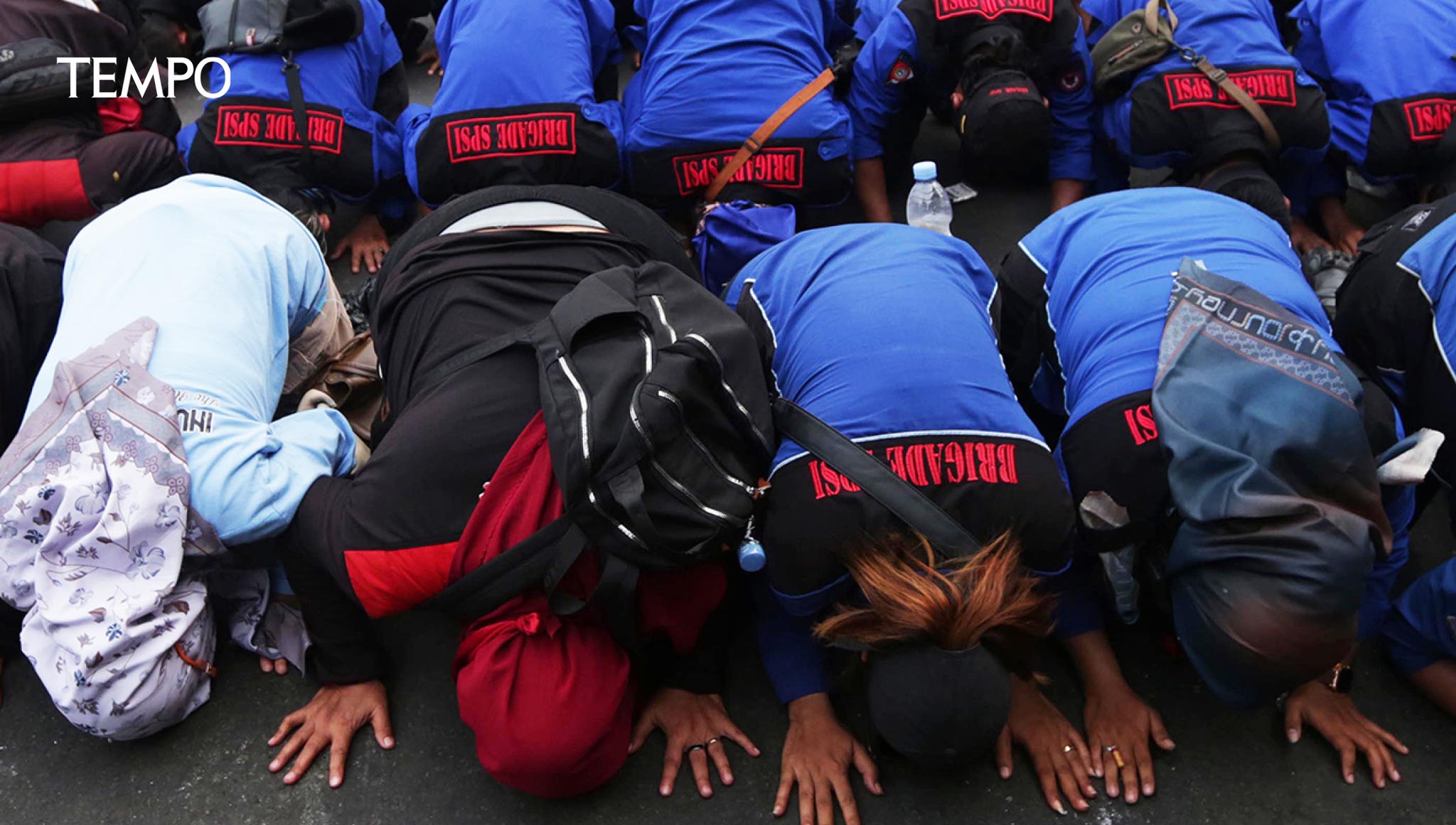Democracy has Returned to Jakarta
Pramono Anung is leading in the Jakarta gubernatorial election. This is a form of resistance to intervention from the national leadership.
Tempo
December 2, 2024

THE apparent victory of Pramono Anung and Rano Karno in the Jakarta regional head election shows that the people are not easily manipulated by a national leadership that wants to wreck democracy. An exit poll on November 27 and the real count from the Regional General Elections Commission (KPU) shows that the Indonesian Democratic Party of Struggle (PDI-P) candidate has obtained 50.07 percent of the vote.
If there are no machinations and no changes before the KPU finishes the count on December 15, Pramono’s share of the vote will be enough to make him Jakarta’s 18th governor for the 2024-2029 period. Despite this, there is one thing to note from Pramono’s victory: the level of participation by Jakarta’s voters in the regional election was only 58 percent, the lowest turnout ever for a Jakarta gubernatorial election.
There is as yet no explanation for the low voter turnout, but political analysts believe that the public has had enough of the dirty tactics used by the government-backed alliance to ensure the victory of the candidate pairing that it created. After former President Joko Widodo insisted on pairing Ridwan Kamil and Suswono, then campaigned for them, President Prabowo Subianto also backed them. As a result, instead of opposing these abuses of power, voters became apathetic about the political process.
Therefore, Prabowo is responsible for the low turnout. He lower himself by aligning his position with that of Jokowi. Prabowo’s predecessor closed his eyes to the ethical and legal principles that ban state officials from taking sides in an election. At the end of his administration, Jokowi manipulated the law to damage democracy in order to extend his power through a political dynasty. Apparently, Prabowo is now continuing this bad habit.
These brazen ethical and legal violations have now been blessed by the Elections Supervisory Agency (Bawaslu), which said that Prabowo did not break the rules because his campaign video was made on a Sunday and his opinions were expressed in his capacity as the leader of the Gerindra Party. Prabowo has forgotten that the people cannot differentiate between his roles as president, an inhabitant of Bojong Koneng and a party leader.
The clear thinking of most voters in Jakarta should be appreciated. Those who came to the polling stations were not taken in by the misplaced logic of Bawaslu, Jokowi, Prabowo and their cronies. The exit poll data shows that those who had originally planned to vote for parties belonging to the Indonesia Onward Coalition, which supported Ridwan and Suswono, voted instead for Pramono-Rano or the independent Dharma Pongrekun-Kun Wardana pairing.
The results of the Jakarta election also confirmed the findings of researchers on the rise of abuses of power, money politics and patronage and clientelism. One of these findings is the link between income and education and the rationality of voters. More educated people who have economic independence are more rational in making their political choices. They do not simply parrot the words of the leadership, give in to money politics or let themselves be taken in by the temptation of social assistance funds.
According to the Central Statistics Agency, the average education of people living in Jakarta in 2023 was at senior high school level, and the per capita income in 2022 was Rp299.7 million. Meanwhile, the education of people in North Sumatra, Central Java and East Java is equivalent to junior high school level, and average income is less than Rp60 million. In these three provinces, the gubernatorial candidates that Jokowi and Prabowo campaigned for won outright.
Democracy needs political freedom and economic independence, according to Mohammad Hatta in his book Demokrasi Kita (Our Democracy). But the fact that these conditions are not met does not justify the national leadership ‘bending’ democracy.
In an issue of Pandji Masjarakat magazine published in 1960, Hatta criticized the parliamentary democracy that has been wrecked by President Sukarno. The constant bickering in parliament had led to Sukarno dissolving the body and replacing parliamentary democracy with guided democracy.
In Jakarta, the healthy democracy imagined by Hatta 64 years ago has perhaps been realized. But on the national level, there is still a long way to go.
